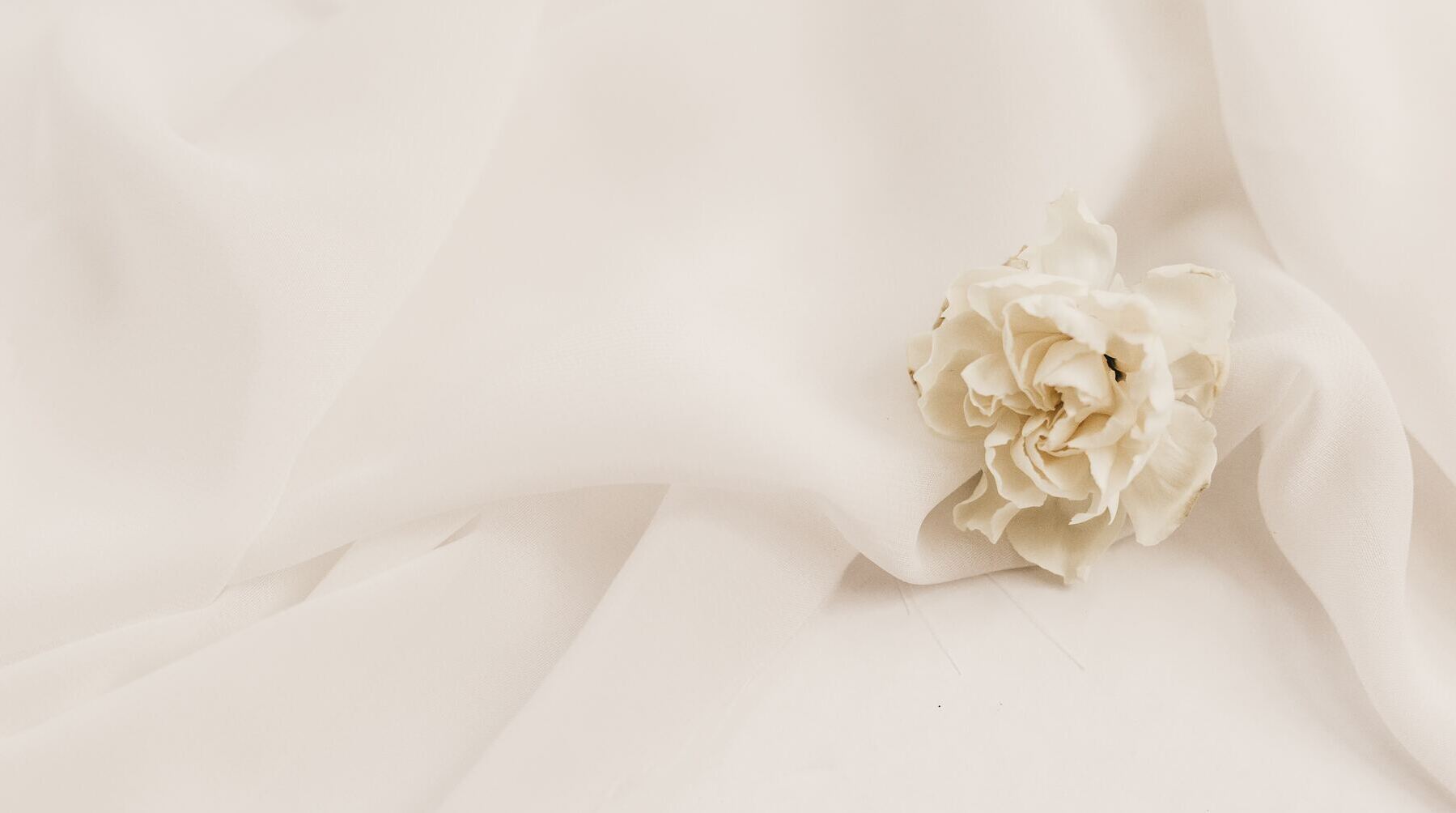In a world overwhelmed by consumer choices, how do you ensure that even your sleep is aligned with your environmental values? Bamboo and silk are two types of natural fibers commonly used in the textile industry.
But how do they stack against each other as bedding options? In this article, we’ll compare bamboo to silk sheets to help you make an eco-friendly choice without sacrificing comfort.
The Importance of Eco-Friendly Bedding Choices
With environmental crises reaching a boiling point, every choice we make has an impact, including our bedding. Traditional bedding materials like cotton and polyester often come with a hefty carbon footprint, because of the use of pesticides, water consumption, and energy-intensive manufacturing processes.
Switching to eco-friendly alternatives like bamboo and silk materials is not only a win for you but also for the Earth. Bamboo is a rapidly renewable resource with a lower ecological footprint, while silk, though not without its challenges, also offers a more luxurious eco-friendly option.
Bamboo Sheets: The Sustainable Comfort
The Origin Story
Bamboo sheets have risen in popularity over the last decade, not just for their comfort but for their sustainability as well. Unlike traditional cotton, bamboo can grow quickly without the need for pesticides or extensive irrigation, making it a champion in eco-friendliness. Moreover, the process of turning natural bamboo fibers into fabric has evolved to become more environmentally responsible.
Key Features of Bamboo Sheets
One of bamboo sheets’ key attributes is their comfort. Their natural softness rivals that of silk and Egyptian cotton, ensuring a luxurious feel right out of the box. Here’s some the reasons why bamboo sheets feel so good:
- Breathability: One of the most appreciated features of bamboo fabric is its breathability. Perfect for hot sleepers, the material allows air to flow freely, helping to regulate body temperature throughout the night.
- Moisture-Wicking: Say goodbye to sweaty nights. Bamboo sheets are excellent at moisture-wicking, which means they pull sweat away from your body and allow it to evaporate quickly.
The journey from bamboo fields to your bedroom involves sustainable farming practices and low-impact manufacturing. Moreover, with their breathability and moisture-wicking properties, bamboo sheet sets are a dream come true for those in search of functional luxury.
Silk Sheets: A Symbol of Luxury
A Brief History
Silk has long been synonymous with luxury and opulence, dating back to ancient China where it was first discovered. While the silk-making process, known as sericulture, has evolved over the years, it’s important to note that traditional silk farming does have an environmental impact.
Indeed, the production of silk fabrics can be energy-intensive and generate high amounts of greenhouse gasses. Additionally, sericulture often involves killing the silkworms to obtain the silk, which can be a concern for animal lovers and ethical consumers.
Key Features of Silk Sheets
- Hypoallergenic: For those prone to allergies, silk sheets are naturally hypoallergenic, reducing the chances of allergic reactions.
- Thermal Regulation: Silk is also known for its thermal regulation properties. It can keep you warm in the winter and cool in the summer, making it a year-round choice.
- Softness: One cannot discuss silk without mentioning its incomparable softness. The smooth texture can be especially beneficial for people with sensitive skin.
Bamboo vs Silk Sheets: Detailed Analysis
Making the right choice between bamboo and silk sheets can seem overwhelming, especially with both offering unique advantages. To make your decision easier, we’ve laid out a comprehensive comparison focusing on several key criteria.
Comfort
Both bamboo and silk sheets score high in terms of comfort. However, bamboo’s moisture-wicking properties may offer a slight edge for those living in warmer climates.
Durability
Silk sheets, while luxurious, can be delicate and require more careful handling. Bamboo sheets are generally more durable and resilient.
Sustainability
Bamboo has a clear advantage here. It’s a rapidly renewable resource and its cultivation is generally more sustainable than traditional sericulture, which can be resource-intensive and less ethical due to the killing of silkworms.
Cost
While silk sheets are often on the more expensive side, bamboo sheets offer a more budget-friendly yet sustainable option.
By comparing these key factors, it becomes clear that each material has its own merits. Your final choice may depend on your specific needs—whether you prioritize sustainability, have a fixed budget, or are looking for the ultimate comfort.
Caring for Your Sustainable Bed Sheets
Now that you’ve gotten a thorough understanding of the benefits and downsides of both bamboo and silk sheets, it’s essential to know how to take care of them. Proper care not only prolongs the life of your sheets but also ensures that they remain comfortable and effective.
Bamboo Bedding Sheets Care Instructions
Bamboo sheets are fairly easy to maintain. Here are some tips to keep them in top condition:
- Washing: Use a mild, eco-friendly detergent and wash in cold water. Avoid using bleach as it can weaken the fibers.
- Drying: Tumble dry on a low setting or line dry to preserve the integrity of the fibers. Keep out of direct sunlight to avoid fading.
- Ironing: If needed, iron on a low setting. However, most bamboo sheets have a naturally smooth texture that minimizes wrinkles.
Silk Bedding Sheets Care Instructions
Silk sheets require a bit more attention to keep them looking and feeling luxurious.
- Washing: Hand washing is preferred. If machine washing, use a gentle cycle and specific silk-friendly detergent.
- Drying: Air dry by laying the sheets flat on a clean, dry towel. Avoid hanging as this can deform the shape of the sheets.
- Ironing: Iron on the silk setting and always iron the backside to avoid damaging the lustrous front side.
By following these care guidelines, you can ensure that your bamboo or silk sheets stay luxurious and last longer. Proper care is crucial, especially when you’ve invested in high-quality, sustainable bedding.
The Final Verdict: Silk or Bamboo Sheets?
After diving deep into the unique characteristics, benefits, and care requirements of both bamboo and silk sheets, it’s time for the final verdict.
Bamboo sheets offer an excellent blend of softness, breathability, and moisture-wicking properties, making them ideal for a comfortable night’s sleep. On the other hand, silk sheets provide a luxurious feel and have hypoallergenic properties, but they require more meticulous care and generally come at a higher cost.
Now, considering the ease of maintenance, comfort, and sustainability, our recommendation leans towards bamboo sheets. They offer robust eco-friendly credentials at a more affordable price point, and their easy care regimen makes them a practical choice for everyday use.
If you're curious to see how bamboo sheets compare to other types of sheets, check out these articles comparing them to Egyptian cotton sheets and microfiber sheets.
Get Your Bamboo Sheets from Earthly Threads
If you’re keen on making a sustainable choice without compromising on comfort, Earthly Threads is your go-to destination for high-quality bamboo products. We prioritize both ecological responsibility and customer satisfaction.
We invite you to browse our extensive catalog of bamboo products, all designed with your comfort and the planet’s well-being in mind. If you have any questions or need further assistance, our team is always here to help.


